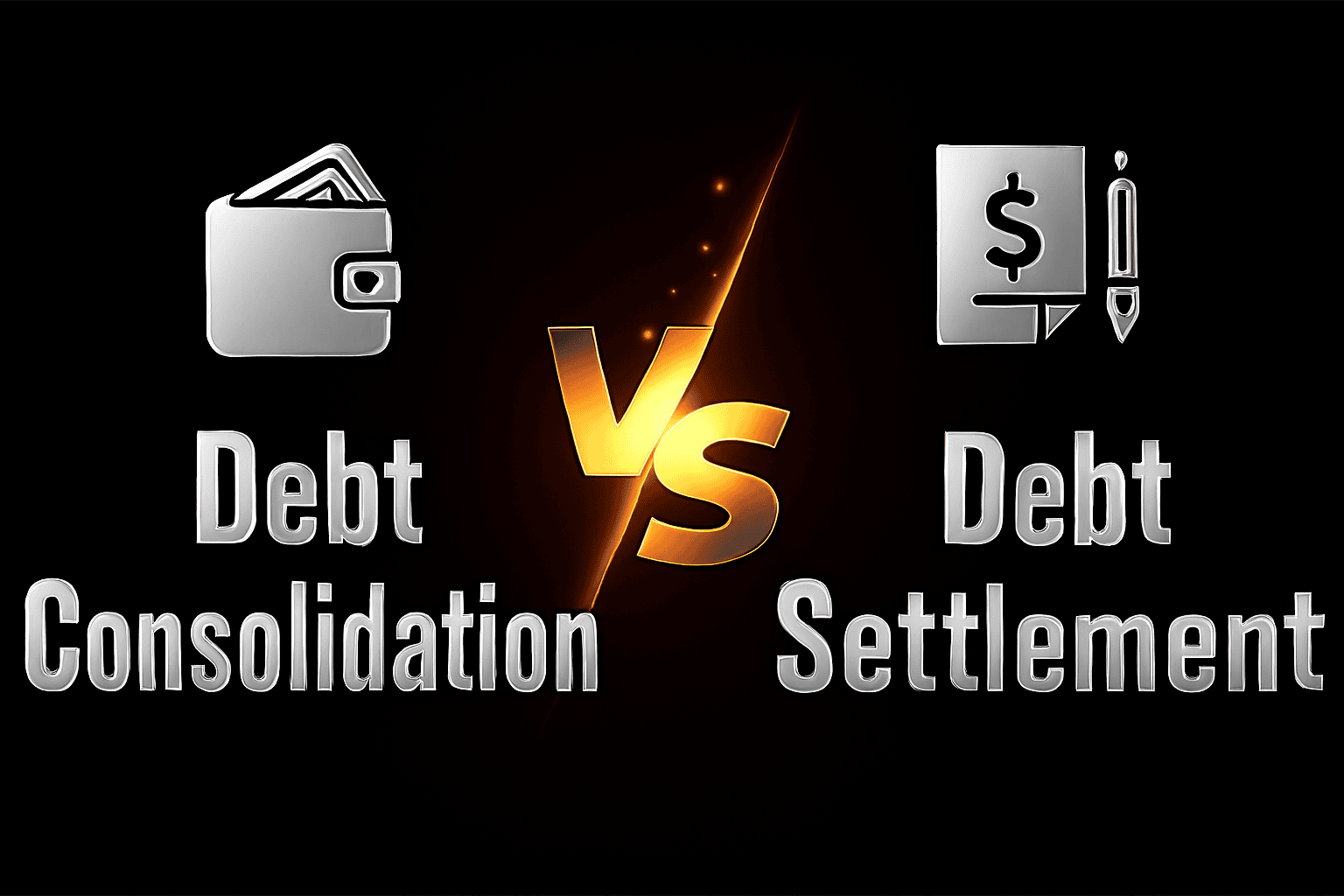If you’re buried in credit card balances, personal loans, or medical bills, you’ve likely seen two options: debt consolidation and debt settlement. They sound similar, but they work differently, carry different risks, and lead to very different outcomes.
Here’s how to compare them and choose what fits your situation.
Debt Consolidation: Streamline and Simplify
Debt consolidation means combining multiple debts into one new loan—usually with a lower interest rate and a single monthly payment. You still repay the full amount you owe, but you do it more efficiently.
How it works:
- You apply for a personal loan, balance transfer card, or home equity loan
- Use that loan to pay off existing debts
- Make one monthly payment to the new lender
Benefits:
- Lower interest rates (especially if your credit score has improved)
- Easier budgeting with one due date
- No damage to your credit score if payments stay current
Risks:
- You may need good credit to qualify for favorable terms
- Extending the loan term can mean paying more in total interest
- If you keep using old credit cards, you risk doubling your debt
Best for: People with steady income, decent credit, and a desire to simplify their debt.
Debt Settlement: Negotiate and Reduce
Debt settlement means negotiating with creditors to pay less than you owe. You stop making payments, let the account go delinquent, and offer a lump sum or structured settlement. Creditors accept less to avoid total loss.
How it works:
- You or a settlement company contacts creditors
- You offer a reduced amount—often 40 to 60 percent of the balance
- If accepted, the debt is marked “settled” on your credit report
Benefits:
- You pay less than the full balance
- Can resolve debts faster if you have cash available
- May help avoid bankruptcy
Risks:
- Major damage to your credit score (accounts go delinquent)
- Creditors may refuse to settle or sue for full payment
- Settlement companies often charge high fees and may delay action
Best for: People facing financial hardship who cannot afford minimum payments and are willing to accept credit damage for faster relief.
Which Saves You More?
It depends on your goals.
- If you want to protect your credit and reduce interest, consolidation saves more long-term.
- If you need immediate relief and can’t afford full repayment, settlement may save more short-term—but at a cost.
Example:
- You owe $20,000 across five cards.
- Consolidation loan at 8% over 4 years = ~$24,000 total repayment
- Settlement at 50% + 20% fees = ~$12,000 total cost, but with credit damage
The math favors settlement, but only if you’re ready for the consequences.
Key Questions to Ask Yourself
- Can I afford minimum payments now?
- Is my credit score above 620?
- Do I have access to a lump sum or emergency savings?
- Am I okay with a credit score drop for the next 2–3 years?
Your answers guide the decision. There’s no universal best—only what fits your financial reality.
Debt consolidation and settlement are tools, not magic fixes. One preserves your credit and simplifies payments. The other cuts your balance but leaves scars. Choose based on your income, credit health, and tolerance for risk. And whatever path you choose, commit fully. Half-measures only delay the outcome.


Leave a Reply